-
•
•
2 responses
As the Children of Israel entered the promised land, they also faced a change of leadership, with all that entails. As Moses doesn’t cross the Jordan, Joshua is called to lead the Israelites, cross the Jordan and subjugate the territory promised. Lesson 18 of the Old Testament Gospel Doctrine manual portrays this time as a time when the Children of Israel re-commit themselves to serving the Lord behind a new leader. Following the death of Joseph Smith, the nascent Mormon people also had to face a change in leadership, and (although in a somewhat different manner) cross a river behind… Read More
-
•
•
11 responses
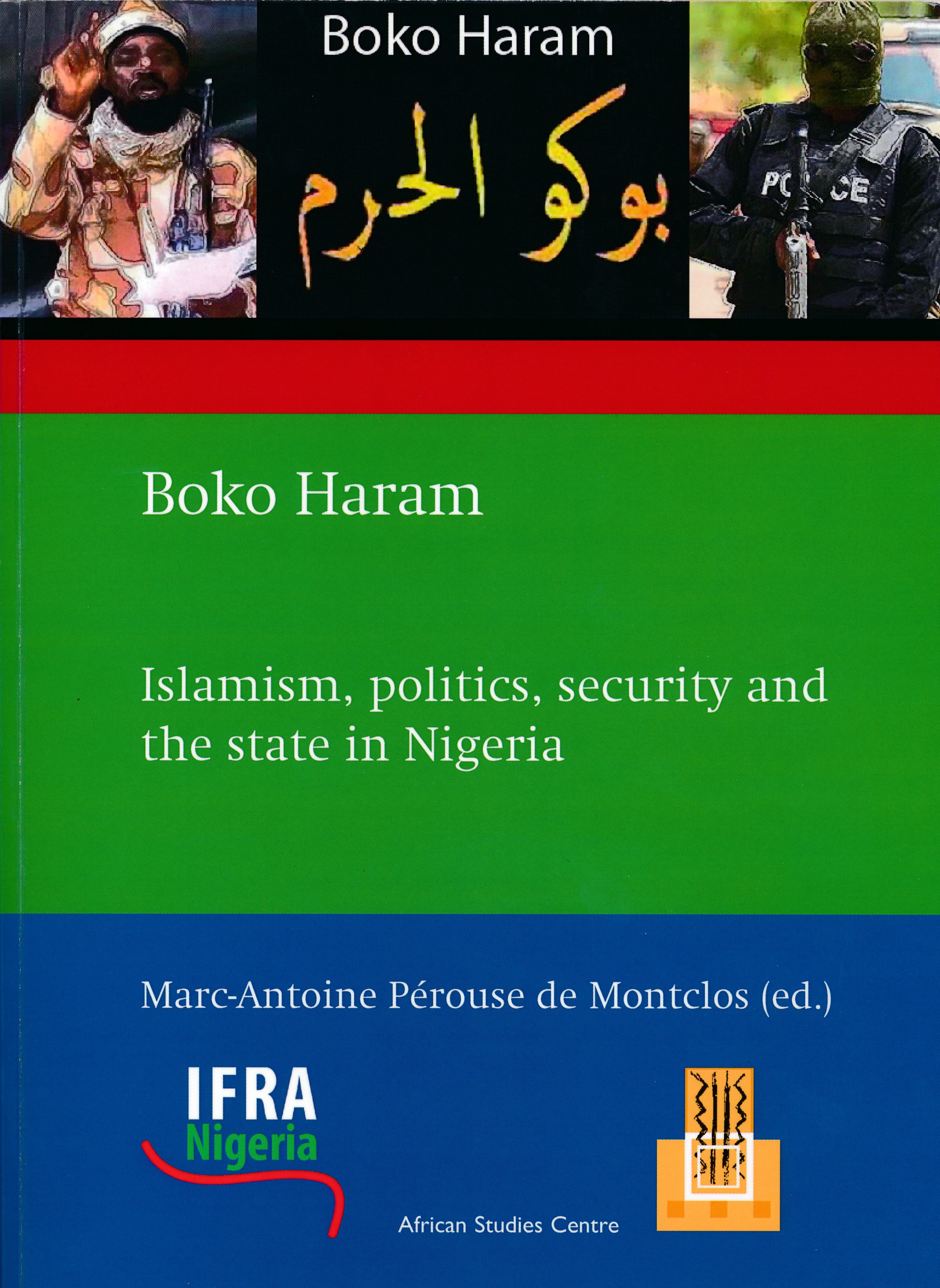
The French president Francois Hollande is convening an international conference with the countries around Nigeria on the question how to deal with Boko Haram, Michelle Obama addressed the USA on the plight of the abducted schoolgirls: all through the western world the media react to this incident in North Nigeria. Last Saturday I gave an interview on Boko Haram for the national Dutch radio: the media have ‘discovered’ Boko Haram, and so have international politics. Of course the furor is completely justified, especially when the leader of Boko Haram, Abubakar Shekau, announced that he would sell the girls, either as… Read More
-
•
•
Approaching the promised land has to influence leaders to remind their followers of how they should act when they enter the long-sought utopia. The goal is to live as God would have them live, covenanting to live in righteousness and harmony. In the case of Moses, as described in Old Testament Gospel Doctrine lesson 17, he gives instructions to the Israelites to help them remember their covenants. He urges them to obey the commandments and remember God and to be mindful of the rock of their salvation. While the experiences of the Mormon pioneers are similar to those of the… Read More
-
•
•
34 responses

Since Nathaniel mentioned Game of Thrones and why he doesn’t watch it in his wonderful post earlier this week, I thought I’d give you a few lines on why I do watch the series. Much ink has been spilled over the gratuitous sex and violence in Game of Thrones. I’ll admit that I roll my eyes over the fact that every conversation that can possibly take place whilst the person speaking (or at least someone else in the room) is having sex, does. Still, I think what tends to bother people even more is the sense that there are no boundaries to the terrible… Read More
-
•
•
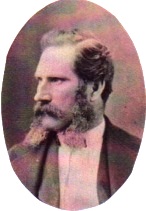
The story of Balaam, as discussed in Old Testament Gospel Doctrine lesson 16, is about a prophet’s struggle with obedience and the requirements of political leaders. As portrayed in the Bible, Balaam follows the commandments of the Lord, but he attempts to get gain by currying favor with a political leader needed. I think this issue of obedience is fascinating, something that, if we all think about it, we also face. We all have employers, friends, and others who try to influence us, sometimes against what we know the Lord would have us do. Our response is sometimes to merely… Read More
-
•
•
Lesson 10 of the Joseph Fielding Smith manual discusses our search for truth, citing many of the prophet’s statements on how we are to obtain knowledge of the truth and on the value of truth in our lives. President Smith teaches that truth is something we should seek and value—ideas that can be found in the following poem. Read More
-
•
•
4 responses
So I read Bigler and Bagley’s The Mormon Rebellion: America’s First Civil War, 1857-58 (U. of Oklahoma Press, 2011) last week. It will certainly convince you that the Utah Territory of the 1850s was the Wild Wild West as much as it was Zion. Checking the footnotes, it seems like the narrative is built primarily on reports from dissenters, which I suppose is where you turn for facts if you think Mormons were all liars, thieves, and murderers. There wasn’t much historical context provided, say about levels of violence in other western settlements or maybe something about that Second Civil… Read More
-
•
•
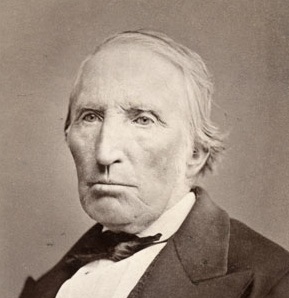
As the Mormon pioneers began their westward trek, they already saw themselves on an exodus similar to that of ancient Israel leaving Egypt for the promised land. And they faced some of the same difficulties that Israel faced—such as those outlined in Old Testament Gospel Doctrine lesson 15: complaints, backbiting, uncertain knowledge of the land they were going to, and even a promised land populated by another people. The poem below, written near the beginning of the Mormon trek, urges the Saints in England to promptly take part in the trek, despite its dangers and the misgivings of many Church… Read More
-
•
•
19 responses
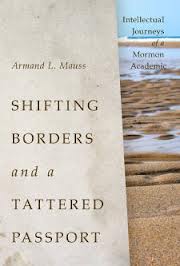
We continue our Q&A with Armand Mauss, LDS author and scholar. See Part 1 for a full introduction. 5. Let’s talk now about some of the issues you discussed in your memoir, Shifting Borders and a Tattered Passport: Intellectual Journeys of a Mormon Academic (U of U Press, 2012). In Chapter 6, “Recurrent Visits with the Race Issue,” you recount how you conducted research on the LDS race issue during the 1960s for your dissertation on Mormonism and minorities, filed at UC Berkeley in 1970. That put you smack in the middle of the most contentious issue in the Church… Read More
-
•
•
13 responses
“The rise of biblical criticism” is the title of a section in Jaroslav Pelikan’s Whose Bible Is It? A History of the Scriptures Through the Ages (Viking, 2005). Those pages are a short and objective introduction to what is variously called biblical criticism, historical criticism, higher criticism, or the historical-critical method. This discussion is sort of a set up for my upcoming review of David Bokovoy’s new book Authoring the Old Testament: Genesis — Deuteronomy (Kofford Books, 2014), which I will be posting in two parts over the next couple of weeks. Read More
-
•
•
6 responses

Sometimes I have a hard time concentrating during the Sacrament. Theoretically, it shouldn’t be difficult. My squirmy, distracting babies and toddlers have grown up; in fact, I play the organ, so my husband sits with the children on Sundays. I sit on the stand by myself, and try to keep my thoughts where they belong–focused on the sacred ordinance in which I am participating. Sometimes it’s difficult. Especially lately. I’ve been going though something of a spiritual desert. The feeling of comfort and safety and familiarity that I’ve long associated with church has been partially converted into doubts and questions… Read More
-
•
•
19 responses
Way back in April 2004, almost exactly ten years ago, Armand Mauss was the very first Times and Seasons 12 Questions guest (see Part 1 and Part 2). A lot has happened in the last ten years, so Armand has graciously agreed to answer 12 more questions. He was a Professor of Sociology for many years at Washington State University (the other Cougars) and is the author of two must-read books for students of Mormonism, The Angel and the Beehive (1994) and All Abraham’s Children (2003). With Lester Bush, he co-edited a collection of essays, Neither White nor Black: Mormon… Read More
-
•
•
12 responses
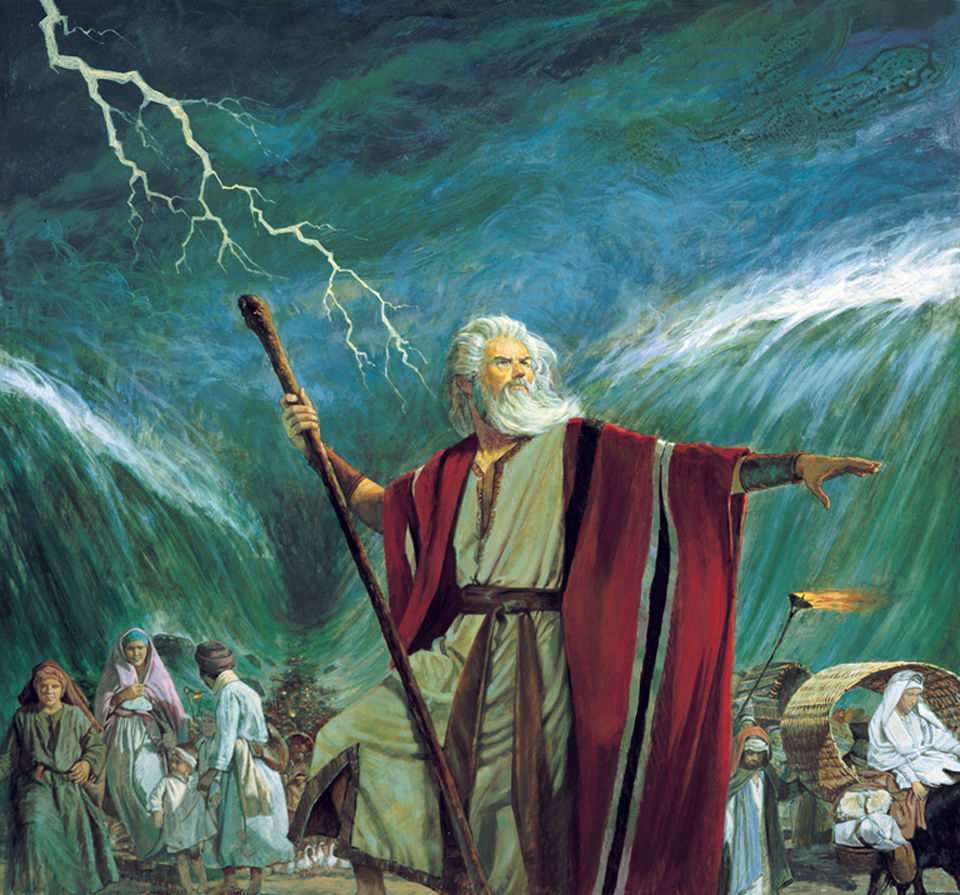
Now that we’re up to Exodus in Sunday School, I am reminded once again of how much murmuring and whining the Children of Israel do. Clearly the major theme of Exodus is God’s power to save. But packed in there is a pretty strong message that God’s people: Read More
-
•
•
6 responses
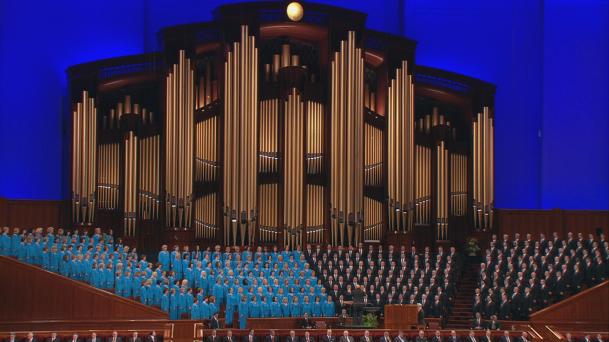
Welcome to T&S’ fifth and final round of coverage of General Conference. We welcome your comments. President Dieter F. Uchtdorf is conducting this session of Conference. Chorus: Sweet is the Work. Prayer: ? Chorus: I Stand All Amazed. President Boyd K. Packer — The Witness “Almost mid-sentence it happened. I could not describe to you what happened if I were determined to do so. It is beyond my power of expression, but it is as clear today as it was that night more than 65 years ago. I knew it to be a very private, very individual manifestation. At last I… Read More
-
•
•

Welcome to T&S’ fourth round of coverage of General Conference. We welcome your comments. Chorus: Come We that Love the Lord President Henry B. Eyring is conducting this session of Conference. Chorus: On This Day of Joy and Gladness Prayer: Élder L. Whitney Clayton Chorus: Let Us All Press On President Dieter F. Uchtdof — Grateful in Any Circumstance “There is one thing we can do to make life sweeter, more joyful, even glorious. We can be grateful.” “Could I suggest that we see gratitude as a disposition, a way of life that stands independent of our current situation? In… Read More
-
•
•
23 responses
I attended priesthood session at my local chapel. About sixty men and boys in attendance. One woman. It was snowing when I left home. I decided to reward my choosing the right with good consequences, so I stopped by my local Wendy’s and bought a small vanilla Frosty. On the way I listened to a few minutes of my current audio CD, Neptune’s Inferno, about the US Navy at Guadalcanal. Right now (in the CD) the US heavy cruiser San Francisco (which survived the fight) is trading fire with the Japanese battleship Hiei (which didn’t) in the Naval Battle of… Read More
-
•
•
4 responses

Welcome to round two of T&S sort-of live coverage of General Conference. President Eyring conducted this afternoon session with President Monson (in attendance) presiding. Opening prayer by Ian S. Ardern, a Seventy, and music by an Institute Choir from Orem, Utah. Direct quotations of a speaker are given in quotation marks; other text represents my own summary. Read More
-
•
•
36 responses

Welcome to T&S sort-of live coverage of General Conference. President Uchtdorf conducted this opening session with President Monson (in attendance) presiding. Opening prayer by Carl B. Cook, a Seventy, and music by the Mormon Tabernacle Choir. Direct quotations of a speaker are given in quotation marks or blockquote form; other text represents my own summary of their remarks or, where noted, my own comments. Read More
-
•
•
9 responses
One can read the Book of Mormon as canonized scripture, to guide the Church and its members in doctrine and practice, or as a sign of Joseph Smith’s calling to bring forth new scripture and establish a restored church. Then there is the possibility of reading the Book of Mormon as literature, to enlighten, uplift, and inspire the reader. So, how literary is it? How exactly does one read the Book of Mormon as literature? Read More
-
•
•
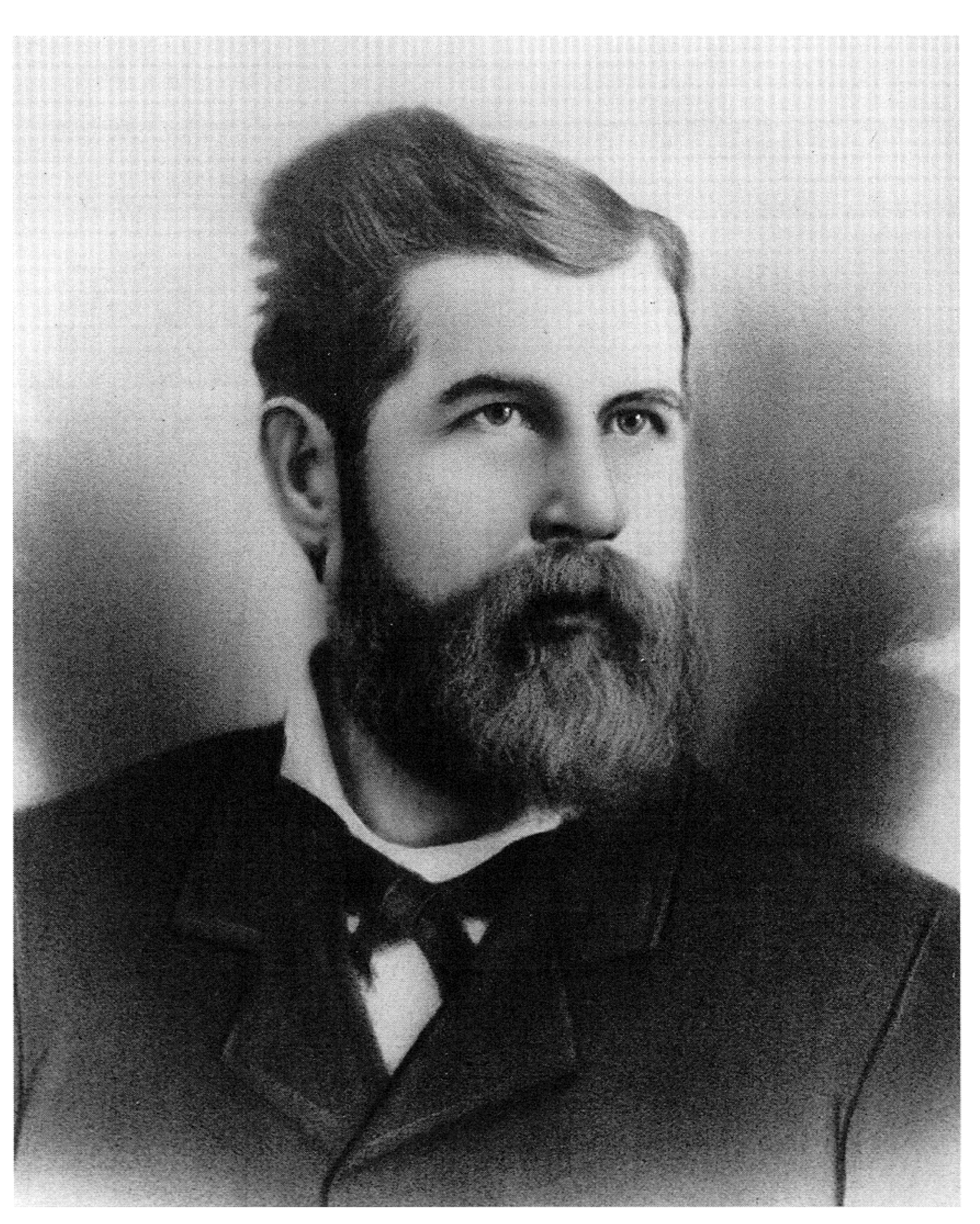
I think that we often think of witnesses as something outside of the event, added to fill a particular need or satisfy the desires of the world. But I wonder if this perception might not be incorrect, if witnesses are not, in fact, an important part of the process of communicating truth. A testimony is, after all, what a witness provides, and, at least in the church, it is hard to imagine communicating truth without testimony. In the fourth D&C Gospel Doctrine lesson witnesses to the Book of Mormon are an important part of the story of the scripture’s preparation.… Read More
-
•
•
85 responses
A conversation in two senses: First, everyone is talking about Ordain Women (here, here, here, here, here, here, and here; a four-part response here; earlier T&S posts here and here). Second, because, almost without noticing its own success, Ordain Women achieved a significant milestone this week as the LDS Church opened a public conversation with the group by publicly posting an official letter addressed to four of the organization’s “official spokeswomen” (as they are identified on the OW website). The LDS letter responds to earlier private communications from the group and, predictably, elicited a publicly posted response at the OW… Read More
-
•
•
15 responses
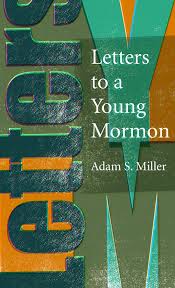
This is a discussion T&S permabloggers Julie and Dave had last week about the new book Letters to a Young Mormon (Maxwell Institute, 2014) by Adam Miller (also a T&S permablogger). Dave: Three things a reader should know about Letters to a Young Mormon: It is short, 78 pages if you count the title page. It is published by the Maxwell Institute, part of their Living Faith series (each volume in the series is an “example of faith in search of understanding” by “a scholar who has cultivated a believing heart …”). And it is written by a philosopher, which… Read More
-
•
•
One response
Are commandments also spiritual fare? When Moses received the law on Sinai, was he spiritually fed? Were the children of Israel? Lesson #14 of the Old Testament Gospel Doctrine manual discusses Israel’s trek across the Sinai, their partaking of manna from heaven, which we interpret today as a symbol of the spiritual feast that our Heavenly Father provides for us. But when we read or talk about the commandments, we sometimes don’t talk about them as spiritual food—instead seeing them as temporal duties to be performed. But, the miracle of their delivery to Moses is a spiritual story, and I… Read More
-
•
•
The story of the exodus of the children of Israel from Egypt is one of the iconic stories of western religious culture. And that story has descended to Mormonism, showing up, of course, in lesson #13 of the Old Testament Gospel Doctrine manual. And we Mormons basically see the story in the same way as other Christians—an oppressed people is led by the hand of God out of opression and into a promised land. But the story has gained other cultural meanings for Mormonism. Best known is naming Brigham Young as the American Moses, and the Mormon pioneer trek as… Read More
-
•
•
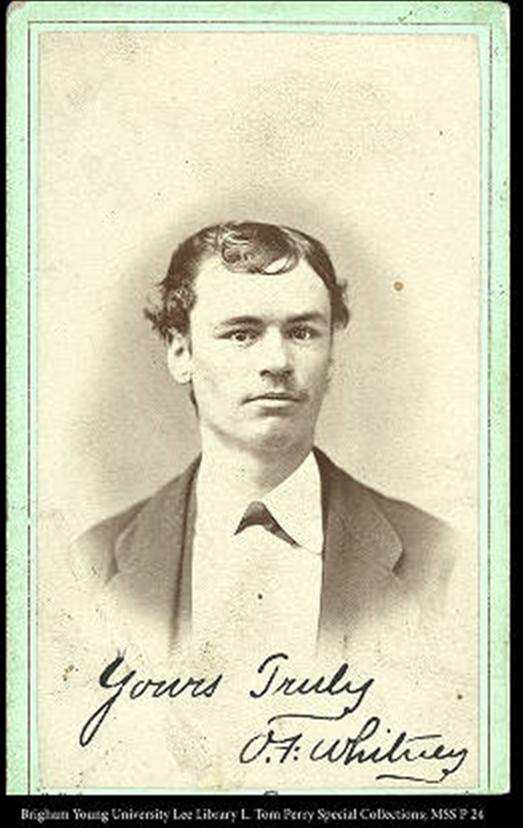
Today, we Mormons see the “coincidence of names” between Joseph of Egypt, Joseph the son of Lehi and Joseph Smith as anything but a coincidence. They shared names allow us to make connections between the three cases, adding to our understanding of their histories. And Old Testament Gospel Doctrine lesson 12 allows us to revisit some of the parallels, such as Joseph’s separation from Israel, and eventual reunion, as well as his visionary nature. Elder Orson F. Whitney, who served as an Apostle from 1906 to 1931, recognized this connection, and included it in his epic poem Elias in the… Read More
-
•
•
3 responses
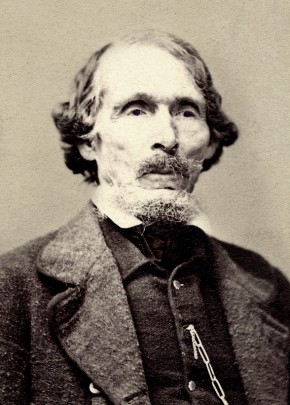
The purpose of the Church as an organization is sometimes ignored by Church members, who take its presence as given. While we know we are supposed to have a Church, we don’t often think about why the organization is needed. Teachings of the Presidents of the Church: Joseph Fielding Smith manual, chapter 8, examines the purpose and the future of the Church through the statements of Smith. Of course, looking at the reason for a Church is nothing new. Early Mormons struggled with aspects of this, since many of them were influenced by the congregationalist models of other restorationist churches,… Read More
-
•
•
One response
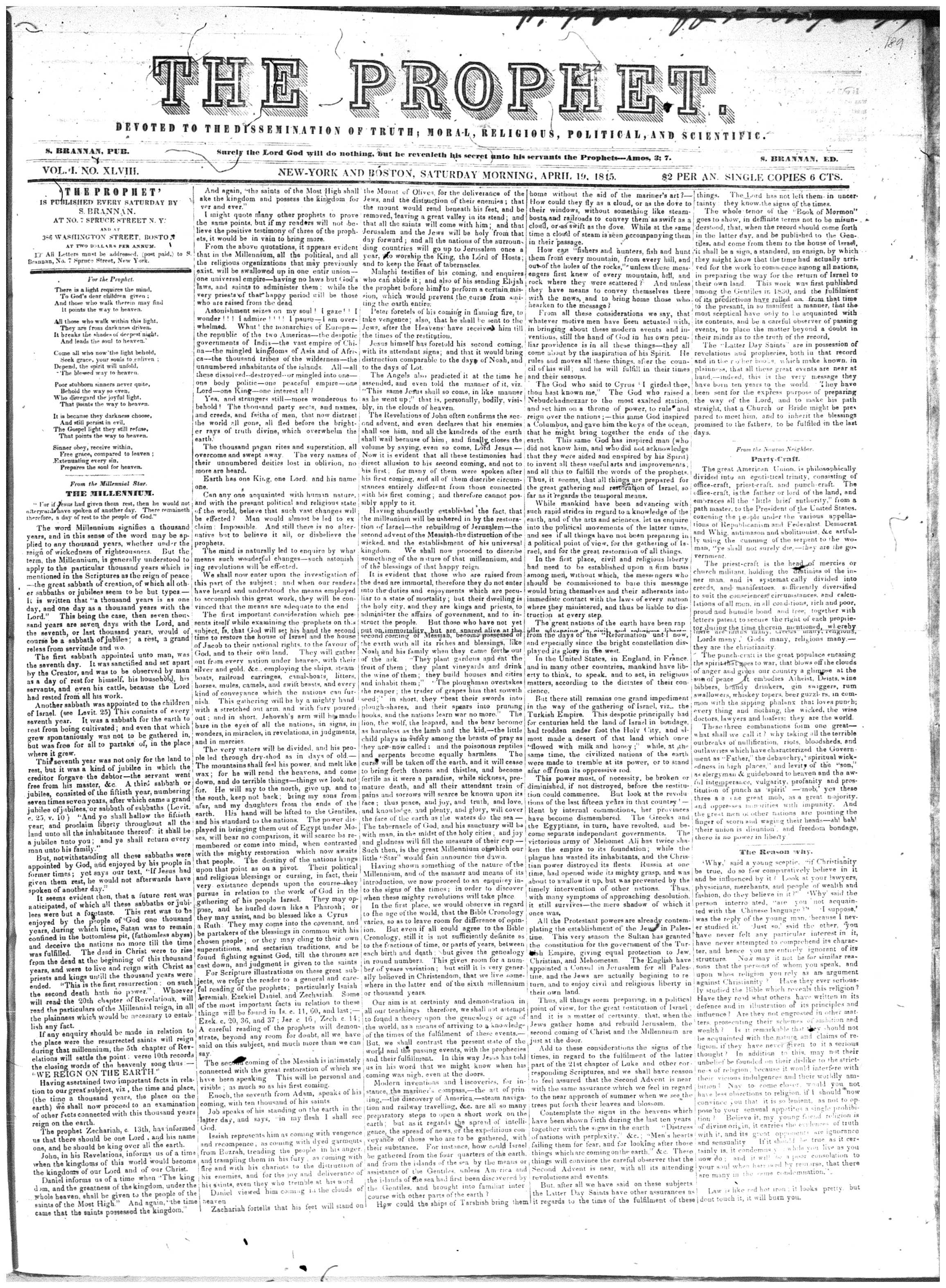
[I’m sorry that I’m a bit behind in getting these posted. I’m hoping to do one each night for the next 3 nights to get caught up.] Temptation is a constant. We all struggle with temptation to do that which we should not, and often these temptations involve significant sin or things that could lead to significant sin. Worse, as Joseph’s story indicates, even when we have acted properly, we can be seen as a sinner or in error, and treated accordingly. Sometimes this is because others are mistaken, and other times it is because those who judge have different… Read More
-
•
•
6 responses
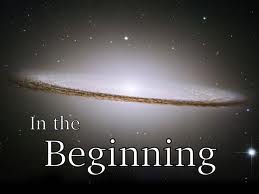
When we read scripture, we generally start at the beginning. This is one reason why openings — first lines, first paragraphs — are so important. They set the scene for what is to follow. They set the context and frame our understanding for entire chapters and books to follow. Terry Eagleton has a lot to say about openings in his How to Read Literature (Yale Univ. Press, 2013). While his focus is on literature, not scripture per se, his comments are helpful because scripture is a form of literature. And when it comes to how to read our scriptures, we… Read More
-
•
•
3 responses
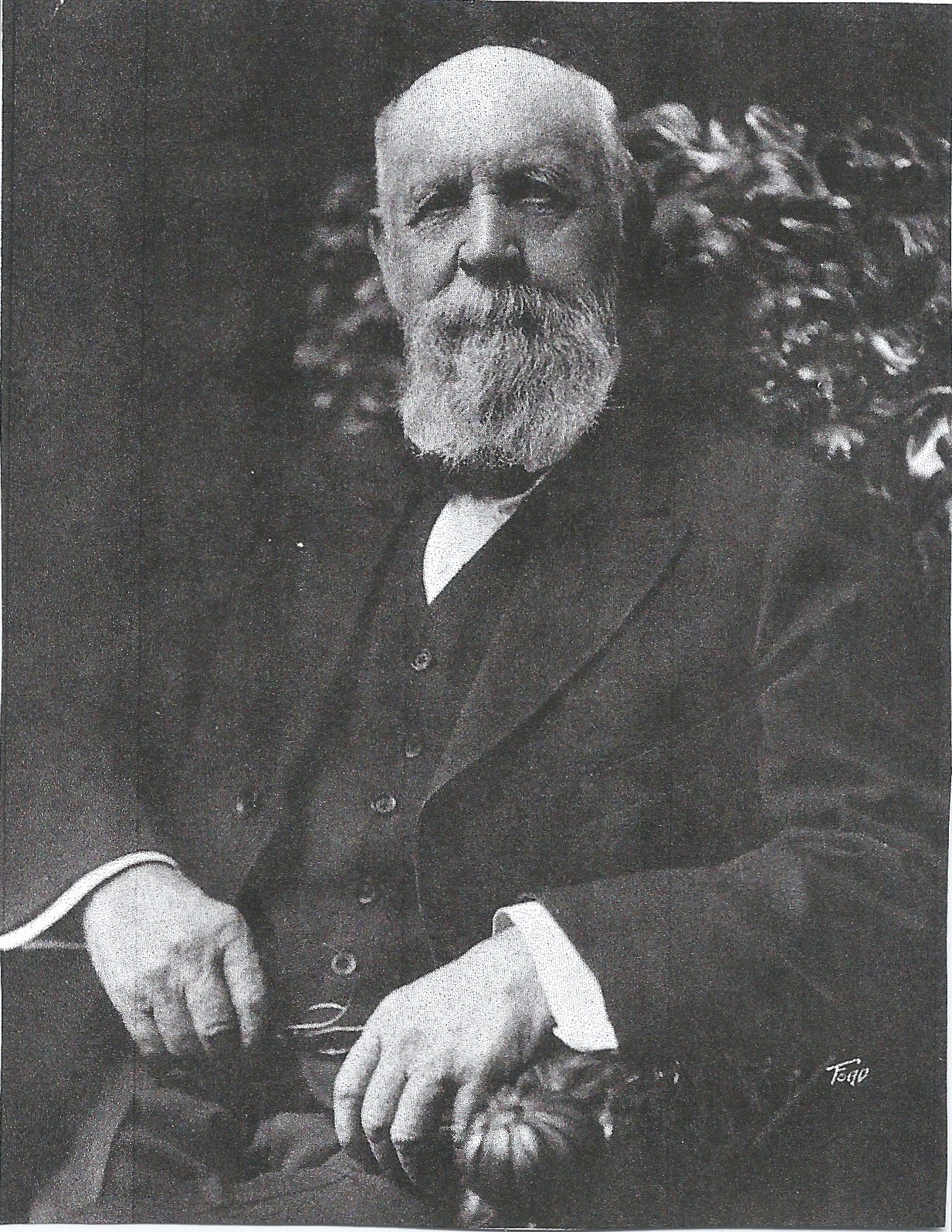
The marriage process in Abraham’s family (covered in Old Testament Gospel Doctrine lesson 10) is very different that the common experience in the Church today (at least in North America). Arranged marriages, polygamy, dowries and working for a wife are all discussed in the source chapters in Genesis, while the marriages are still eternal, evidently the same way that marriages in LDS Temples today are eternal. But while there are clear differences, there are also similarities in how these marriages work. Isaac and Rebekah, as well as Jacob and his wives, work together to make the union productive and to… Read More
-
•
•
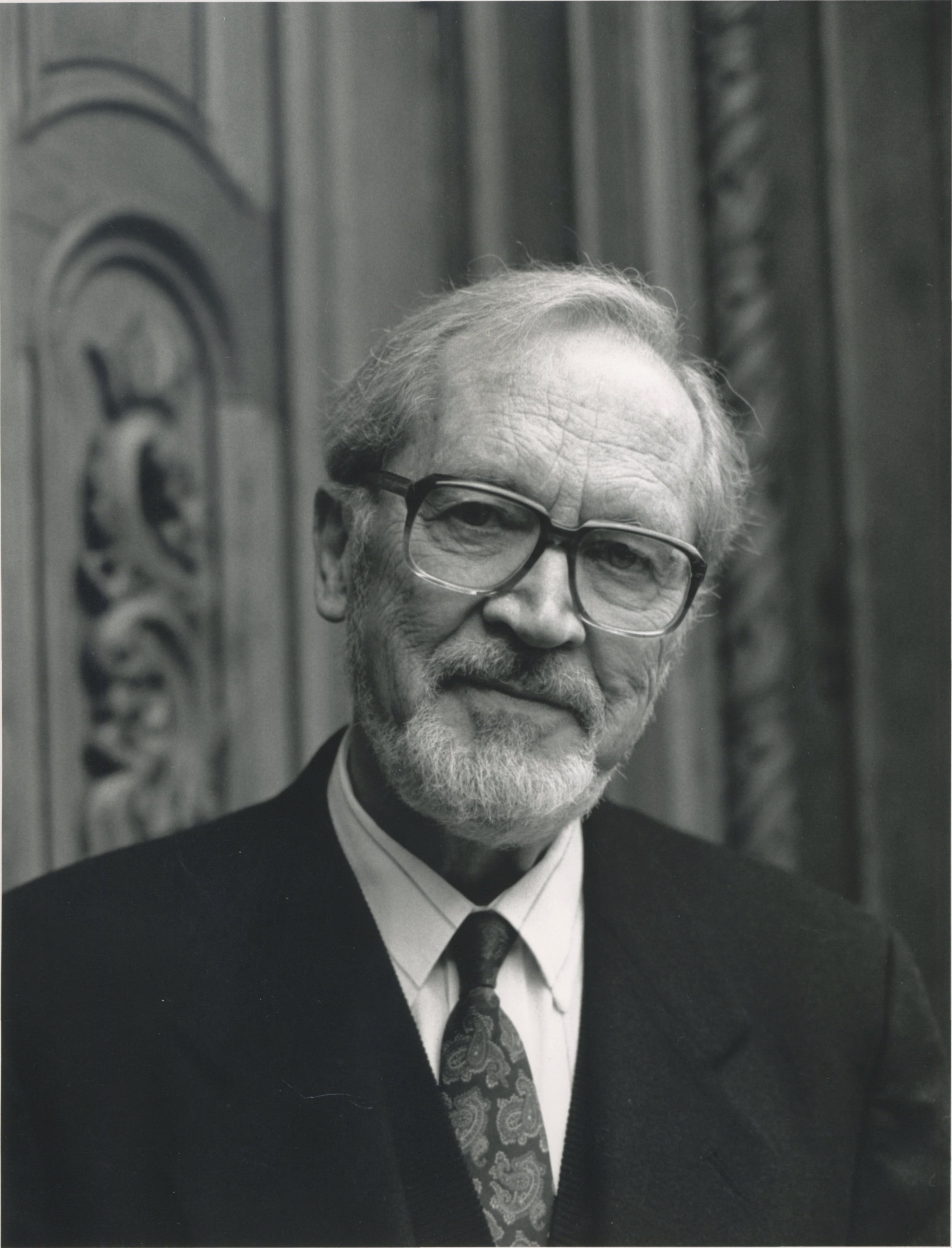
Given how much we talk about Joseph Smith in lessons such as lesson 7 of the Presidents of the Church: Joseph Fielding Smith manual used in Priesthood and Relief Society meetings, you might think I would run out of poetry about him. That isn’t likely to happen. Smith is also a common subject of Mormon poetry — but nowhere near as common a subject as Christ. As the prophet who introduced the current dispensation, restoring the gospel to the earth, according to what we teach, Joseph Smith’s role and the restoration he initiated and shepherded is vital to the world… Read More
